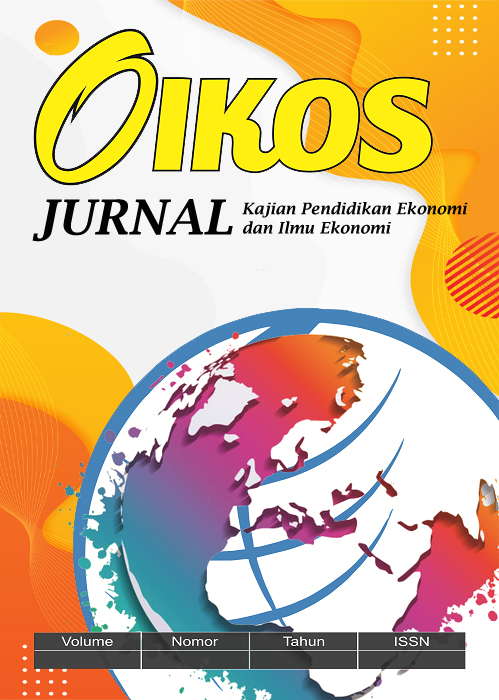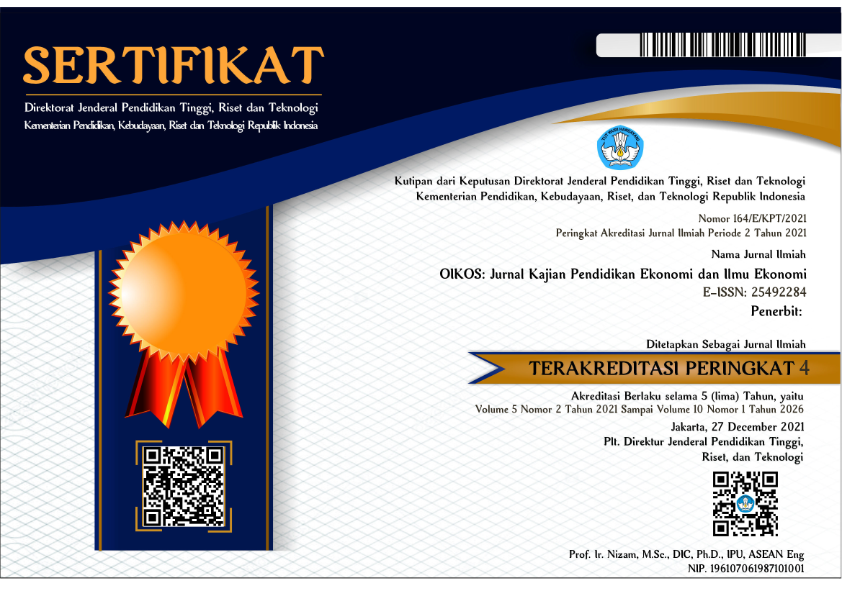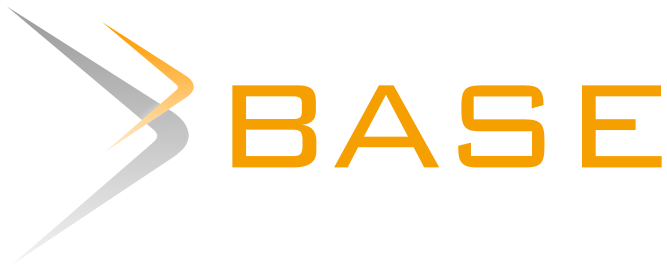THE INFLUENCE OF ENTREPRENEURIAL KNOWLEDGE AND LOCUS OF CONTROL TO ENTREPRENEURIAL INTENTION
-
DOI:
https://doi.org/10.23969/oikos.v7i2.7330Keywords:
entrepreneurial knowledge, locus of control, entrepreneurial intentionAbstract
This study aims to determine how the influence of entrepreneurial knowledge and locus of control on entrepreneurial intention. This is research is a correlational study with a quantitative approach.The subjects in this study were students of SMK MedikaCom Bandung which consisted of several skill programs with a tootal of 476 people. The sample ofthis study amoounted to 217 students of class XI. Data analysis in this study used SPSS 25. The result of this study indicate that entrepreneurial knowledge and locus of coontrol have an effect on entrepreneurial untention.
Downloads
References
Ács, Z. J., Szerb, L., & Lafuente, E. (2019). Global Entrepreneurship Index 2019. https://doi.org/10.13140/RG.2.2.17692.64641
Authors, F. (2006). Journal of Management Development. Journal of Management Development, 25(8). https://doi.org/10.1108/jmd.2006.02625haa.001
Bygrave, W., & Zacharakis, A. (2017). Entrepreneurship : Fourth Edition.
Doğan, E. (2015). The effect of entrepreneurship education on entrepreneurial intentions of university students in Turkey. Istanbul University Econometrics and Statistics e-Journal, (23), 79-93.
Hoque, A. S. M. M., Awang, Z., & Siddiqui, B. A. (2017). Technopreneurial Intention Among University Students of Business Courses In Malaysia: A Structural Equation Modeling. International Journal of Entrepreneurship and Small & Medium Enterprise (IJSME), 4(July), 1–16.
Kasih, Y. (2013). Mewujudkan Pendidikan Kewirausahaan Di Perguruan Tinggi Melalui Proses Pembelajaran yang Berkelanjutan. 2(2), 164–182.
Kemdikbud, P. (2017). Panduan Sinkronisasi Bidang Keahlian Di SMK Dengan Prioritas Potensi Unggulan Wilayah dan Tenaga Kerja.
Kirby, D. A. (2004). Entrepreneurship education: Can business schools meet the challenge? Education + Training, 46(8), 510–519. https://doi.org/10.1108/00400910410569632
Kumar, K., Zindani, D., & Davim, J. P. (2019). Industry 4.0 Developments towards the Fourth Industrial Revolution.
Notoatmodjo . S. (2003). Pendidikan dan Perilaku Kesehatan. Jakarta : Rineksa Cipta.
Riki Yakub Pirdaus, Hari Mulyadi, K. (2022). ICT SELF EFFICACY DAN CREATIVITY SEBAGAI DETERMINASI TECHNOPRENEURSHIP INTENTION. Jurnal Ilmiah Pendidikan Ekonomi Fakultas Keguruan Dan Ilmu Pendidikan, 10, 1–10. https://doi.org/10.33603/ejpe.v10i1.5607
Roxas, B. G., Cayoca-Panizales, R., & De Jesus, R. M. (2009). Entrepreneurial Knowledge and its Effects on Entrepreneurial Intentions: Development of a Conceptual Framework. Asia-Pacific Social Science Review, 8(2), 61–77. https://doi.org/10.3860/apssr.v8i2.784
Roy, R., Akhtar, F., & Das, N. (2017). Entrepreneurial intention among science & technology students in India : extending the theory of planned behavior. International Entrepreneurship and Management Journal. https://doi.org/10.1007/s11365-017-0434-y.
Savitri, C. (2015). Upaya menumbuhkan minat berwirausaha pada mahasiswa prodi manajemen di ubp karawang. 6, 93–112.
Suwardana, H. (2018). Revolusi Industri 4. 0 Berbasis Revolusi Mental. JATI UNIK : Jurnal Ilmiah Teknik Dan Manajemen Industri, 1(1), 102. https://doi.org/10.30737/jatiunik.v1i2.117
Syaifudin, A., & Sagoro, E. M. (2017). PENGARUH KEPRIBADIAN, LINGKUNGAN KELUARGA DAN PENDIDIKAN KEWIRAUSAHAAN TERHADAP MINAT BERWIRAUSAHA MAHASISWA AKUNTANSI. 3, 1–18.
Usman, O., & Simare Mare, M. (2020). Influence Entrepreneurship Education, Self Efficacy, and Locus of Control Toward on Student Entrepreneurship Intentions. SSRN Electronic Journal. https://doi.org/10.2139/ssrn.3646635
Wang, D., Wang, L., & Chen, L. (2018). Unlocking The Influence of Family Business Exposure on Entrepreneurial Intentions. In Entrep Manag J, 951– 974. https://doi.org/10.1007/s11365-017-0475-2.
Watchravesringkan, K. T., Hodges, N. N., Yurchisin, J., Hegland, J., Karpova, E., Marcketti, S., & Yan, R. nan. (2013). Modeling Entrepreneurial Career Intentions among Undergraduates: An Examination of the Moderating Role of Entrepreneurial Knowledge and Skills. Family and Consumer Sciences Research Journal, 41(3), 325–342. https://doi.org/10.1111/fcsr.12014
Widding, L. Ø. (2005). Building entrepreneurial knowledge reservoirs. Journal of Small Business and Enterprise Development, 12(4), 595–612. https://doi.org/10.1108/14626000510628252
Wijaya, T., Nurhadi, & Kuncoro, A. M. (2015). INTENSI BERWIRAUSAHA MAHASISWA : PERSPEKTIF PENGAMBILAN RISIKO. 19(2), 109–123.
Downloads
Published
Issue
Section
License
Copyright (c) 2023 Oikos : Jurnal Ekonomi dan Pendidikan Ekonomi

This work is licensed under a Creative Commons Attribution 4.0 International License.









